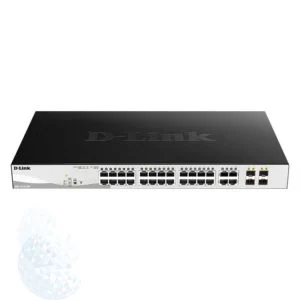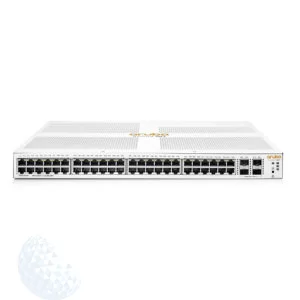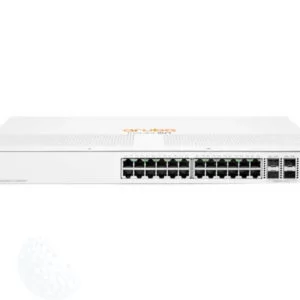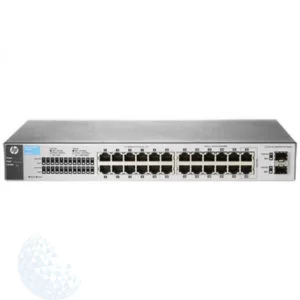Description
The affordable mid-range Aruba 303 Series campus access point delivers high performance 802.11ac with MU-MIMO (Wave 2) for medium density enterprise environments. With the integrated BLE and supporting 802.3af power, the Aruba 303 Series AP enables enterprises to improve their work efficiency and productivity with the lowest TCO.
The compact Aruba 303 Series AP delivers a maximum concurrent data rate of 867 Mbps in the 5GHz band and 300 Mbps in the 2.4GHz band (for an aggregate peak data rate of 1.2Gbps). Featuring 2×2:2SS, the Aruba 303 is designed for medium device density environments, such as schools, retail branches, warehouses, hotels and enterprise offices, where the environment is cost sensitive.
The 303 Series AP has an integrated Bluetooth Low-Energy (BLE) radio, which can be used as an Aruba beacon for advanced locationing, indoor wayfinding, asset tracking, and to enable proximity-based push notification services. The integrated beacon radio also enables the remote management of battery-powered and other standalone beacons in a large-scale network of Aruba beacons. It enables businesses to leverage mobility context to develop applications that will deliver an enhanced user experience and increase the value of the wireless network for organizations.
Aruba AP-303 (EG) Dual 2×2:2 MU-MIMO Radio Internal Antennas Unified Campus AP
Mid-range performance and density 802.11ac Wave 2 Access Point
- The Aruba 303 Series Campus Access Points are cost-optimized for delivering 802.11ac Wave 2 performance in medium density environments.
- Designed specifically for moderate performance requirements.
- Supports dual-radio operation in 2.4 GHz and 5 GHz bands.
Unified Access Points Supporting ArubaOS and InstantOS Modes
- The Aruba 303 Series Campus Access Points deliver architectural flexibility, since they can be deployed either with a controller or in controllerless mode.
- Based on the presence of a controller in the network, the Aruba 303 will load the ArubaOS or InstantOS software automatically.
802.11ac Wave 2 With 2×2:24SS, 80MHz, and MU-MIMO
- The Aruba 303 Series Campus Access Points support 802.11ac with Wave 2 features including 2×2:2SS and up to 80 MHz channel bandwidth.
- Radios support transmissions in Multi-User MIMO (MU-MIMO) and Single-User MIMO (SU-MIMO) operating modes.
Integrated BLE Beacon For Location Services and Asset Tracking
- The Aruba 303 Series Campus Access Points have an integrated Bluetooth Low Energy (BLE) beacon to enable Aruba location services such as beacon management, location notifications and navigation.
- The integration of a BLE beacon enables businesses to leverage mobile context to develop applications that deliver an enhanced user experience and increase the value of the network infrastructure.




